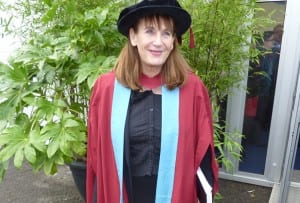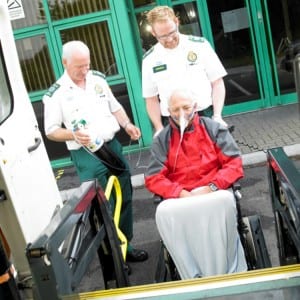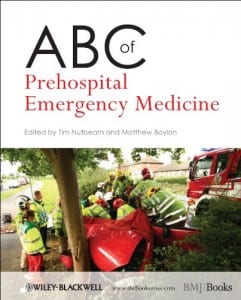 Professor Niro Siriwardena, of the Community and Health Research Unit and Lincoln Institute of Health, gave the opening keynote lecture at the European Network of Occupational Therapy in Higher Education conference in York (17 October 2013) in his role as an academic expert in healthcare quality and a member of the European Forum for Primary Care (EFPC) advisory board. The keynote was entitled: the “EU 2020 Targets – the health 2020 targets and the role of primary care and occupational therapy.”
Professor Niro Siriwardena, of the Community and Health Research Unit and Lincoln Institute of Health, gave the opening keynote lecture at the European Network of Occupational Therapy in Higher Education conference in York (17 October 2013) in his role as an academic expert in healthcare quality and a member of the European Forum for Primary Care (EFPC) advisory board. The keynote was entitled: the “EU 2020 Targets – the health 2020 targets and the role of primary care and occupational therapy.”
 Health 2020, the European policy framework supporting action across government and society for health and wellbeing, was published in 2012 and led by the World Health Organization regional office in Europe. The policy sets out to enable people to achieve their full potential for health and well-being by improving governance and leadership, reducing inequalities and adding value through partnerships and cooperation. It addresses four interlinked, interdependent and mutually supportive priority areas: health throughout the life course, tackling major non-communicable and communicable disease, strengthening people centred health systems, public health and emergency preparedness and creating resilient and supportive environments.
Health 2020, the European policy framework supporting action across government and society for health and wellbeing, was published in 2012 and led by the World Health Organization regional office in Europe. The policy sets out to enable people to achieve their full potential for health and well-being by improving governance and leadership, reducing inequalities and adding value through partnerships and cooperation. It addresses four interlinked, interdependent and mutually supportive priority areas: health throughout the life course, tackling major non-communicable and communicable disease, strengthening people centred health systems, public health and emergency preparedness and creating resilient and supportive environments.
 The lecture initially covered Health 2020 and the background to the policy. Then was presented the evidence for the importance of primary care and multidisciplinary community care for providing cost-effective, coordinated and personalised care to people with long term conditions and multimorbidity, and how delivery of such care can be improved by multidisciplinary education and research. Finally, the role of the EFPC was explained in providing a network to share information, advocacy for primary care to policymakers and politicians and supporting the research and development agenda. The importance of the new link with ENOTHE through Marije Bolt, a member of ENOTHE and Council of Occupational Therapists for the European Countries (COTEC), joining the EFPC advisory board was emphasised.
The lecture initially covered Health 2020 and the background to the policy. Then was presented the evidence for the importance of primary care and multidisciplinary community care for providing cost-effective, coordinated and personalised care to people with long term conditions and multimorbidity, and how delivery of such care can be improved by multidisciplinary education and research. Finally, the role of the EFPC was explained in providing a network to share information, advocacy for primary care to policymakers and politicians and supporting the research and development agenda. The importance of the new link with ENOTHE through Marije Bolt, a member of ENOTHE and Council of Occupational Therapists for the European Countries (COTEC), joining the EFPC advisory board was emphasised.









